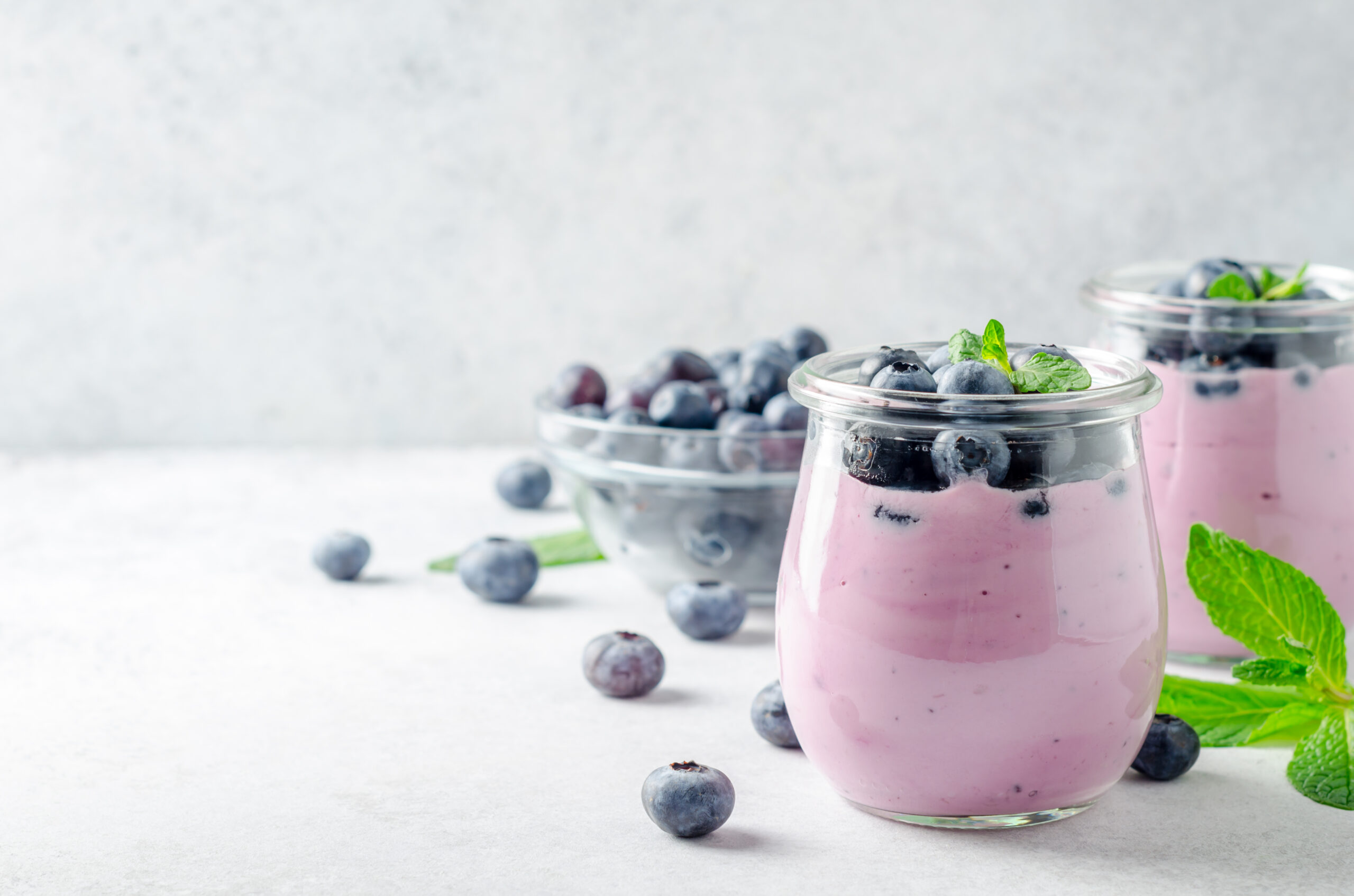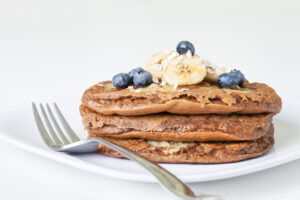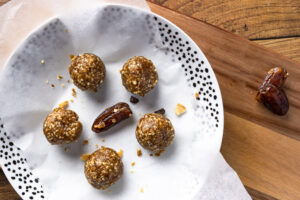Feeling hungry between meals is normal. We can either acknowledge the feeling of hunger and carry on until our next meal or satiate it with food. If we decide we can’t wait, we reach for a snack, but what to have? Let’s find out more about snacks.
What to snack on?
The quality and quantity of our snacks also determine their value to our bodies. Low calorie, nutrient lacking foods neither nourish us, nor fill us up. When we think of snacking, images of crisps, biscuits and chocolate often come to mind, but there are many foods we can snack on that’ll give us valuable macro and micronutrients.
Nutrient dense, fibre or protein rich foods around 100 calories are the perfect snack. Here are a few examples:
- 3 rye crispbreads with 1 tablespoon of reduced-fat soft cheese
- 40g blueberries and small pot (125g) of plain low-fat yoghurt
- 3 tbsp of tomato salsa and carrot sticks
- 2 tbsp reduced-fat hummus and celery sticks
- 5 tbsp tzatziki and cucumber sticks
- 1 thin slice wholemeal toast with 1 teaspoon of peanut butter
- ⅓ – ½ roast/grilled chicken breast
- A few dried apricots or whole almonds
- Sliced boiled egg and a tomato
When to snack?
Like many things involving health and wellbeing, one size doesn’t fit all. Aiming to snack when we’re hungry, not when we’re bored or emotional is a good start. Snacking can be a great way to help us reach our 5 a day, with a variety of fruits, salads and veg perfect for munching on.
Many people find a mid-morning and mid-afternoon snack works for them, preventing them from getting so hungry they overdo it at their next mealtime. After intense exercise is also a prime time to refuel your body with a nutritious boost like a banana.
Eating on the run or when otherwise occupied with our screens, phones, work, or kids makes it hard to eat mindfully. Paying attention to the food we’re eating is important as it helps us develop self-regulation. We savour food more and know when we’re satisfied. It’s very hard to do when we’re distracted. In addition, it can mean we don’t even chew our food properly which is bad for our digestion.
Are there drawbacks to snacking?
Snacks can work for us and against us from a psychological point of view. Some find that sticking to mealtimes helps them stay on track because one snack can easily turn into 3 or 4. Others find snacks get them through the day with little bits to look forward to in between mealtimes.
With some studies linking snacking to weight gain and others to successful weight loss, it’s clear what we snack on, and how often is key.
Snacking tips
- Find what works for you. A snack in the evening may stop you hankering after a biscuit, but it might open the floodgates to the larder.
- Aim to choose snacks lower in saturated fat, salt, and sugar.
- Use traffic light labels when making your choice.
- Be mindful of your calorie goals and fitting snacks within it.
- Plan ahead. Try and carry an appropriate snack in your car/bag/locker. Portable long-lasting options include nuts, seeds and oatcakes.
- Perfect your portions. Be aware that a manufacturer’s serving size might differ from what you’d portion yourself, so do check the labels.
- Make simple swaps for more nutritious snacks: choose unsalted nuts, wholemeal products instead of white and low-fat frozen yoghurt instead of ice cream.





